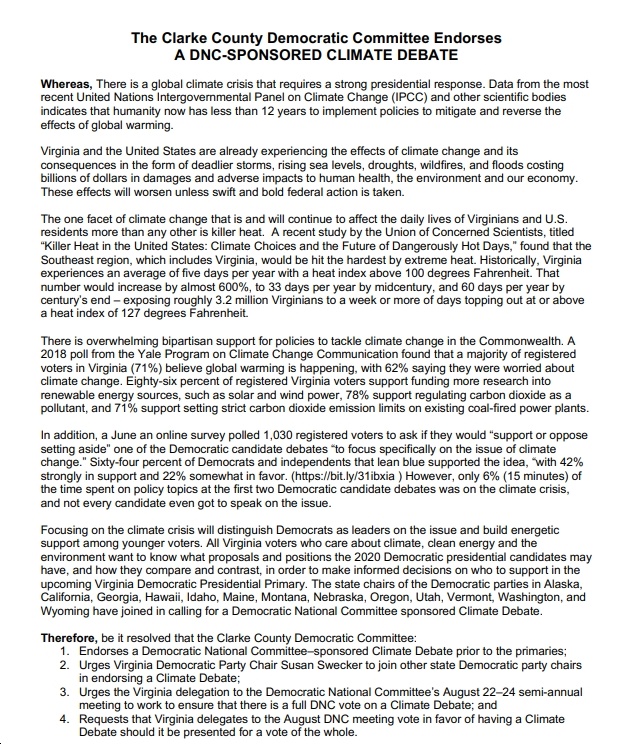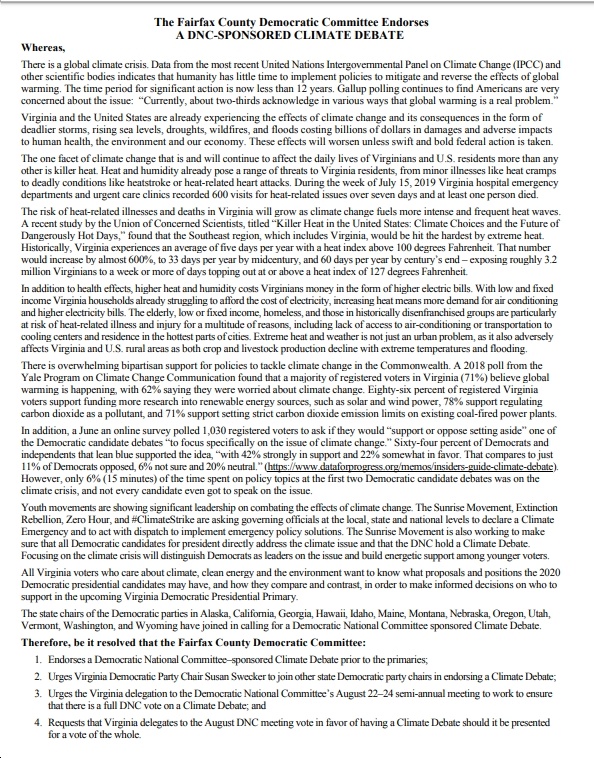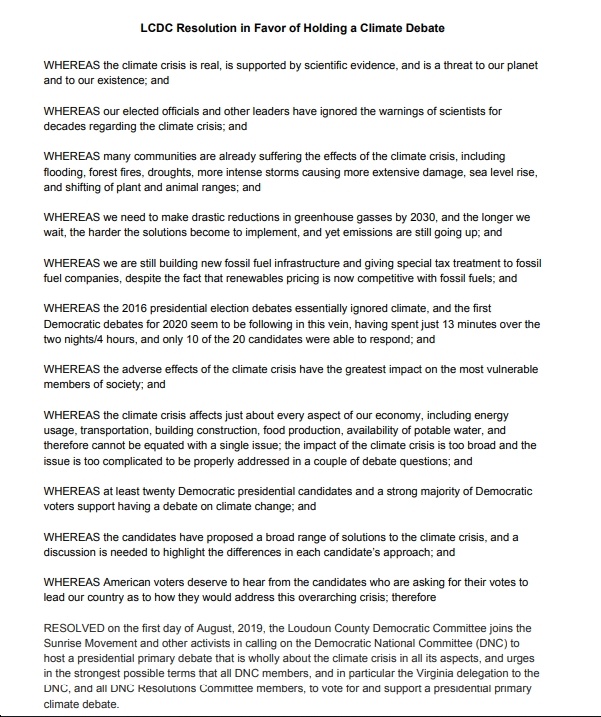There are a few key things we know about the climate crisis. Here are a few.
- First off, global heating is essentially 100% human-created, largely as a result of fossil fuel production/consumption, but also due to deforestation, poor agricultural practices, etc. There’s no scientific debate about this, by the way, and at this point anyone who’s a “skeptic” or denier should simply be ignored as either a fossil fuel industry or a nutjob or both.
- Second, we need to act NOW – get off of fossil fuels ASAP, reforest the planet – or we’re really going to be in deep shit.
- Third, if we DO act now, we stand to benefit in many ways – environmental, economic, health and well being, etc. – as we move towards a sustainable, clean energy economy.
- Fourth, we need government policy to stop tilting the economic playing field massively towards fossil fuels (through subsidies of all types – implicit, explicit, “negative externalities”…), and at the bare minimum level it out. Preferably, government policy will MORE than level things out, given the decades of taxpayer-funded public welfare (corporate socialism) showered on the fossil fuel industry.
- Fifth, we need as much public discussion as possible regarding how we’re going to combat this existential threat.
- Finally, since the corporate media clearly isn’t going to rise to the occasion on this topic, as we just witnessed with the pathetically lame (with regard to the climate crisis) Democratic debates put on by NBC and CNN, we need the DNC to (as the Loudoun County Democrats call for in their resolution, below) “host a presidential primary debate that is wholly about the climate crisis in all its aspects, and urges in the strongest possible terms that all DNC members, and in particular the Virginia delegation to the DNC, and all DNC Resolutions Committee members, to vote for and support a presidential primary climate debate.” Also see the Fairfax County Democrats’ statement, which “Urges Virginia Democratic Party Chair Susan Swecker to join other state Democratic party chairs in endorsing a Climate Debate; Urges the Virginia delegation to the Democratic National Committee’s August 22–24 semi-annual meeting to work to ensure that there is a full DNC vote on a Climate Debate; and Requests that Virginia delegates to the August DNC meeting vote in favor of having a Climate Debate should it be presented for a vote of the whole.” Is there any serious, or even semi-serious, argument against this? If so, I haven’t heard one. So, no more excuses and no more delay…let’s do it!
P.S. It should almost go without saying, but obviously the more Virginia Democratic committees passing resolutions like the Loudoun and Fairfax Dems have done, the better.
UPDATED 8/7: The Clarke County Dems chime in.
 UPDATE 8/14: The Staunton and Augusta County Dems weigh in…
UPDATE 8/14: The Staunton and Augusta County Dems weigh in…
The Staunton Democratic Committee Endorses A DNC-SPONSORED CLIMATE DEBATE
Whereas,
There is a global climate crisis. Data from the most recent United Nations Intergovernmental Panel on Climate Change (IPCC) and other scientific bodies indicates that humanity has little time to implement policies to mitigate and reverse the effects of global warming. The time period for significant action is now less than 12 years. Gallup polling continues to find Americans are very concerned about the issue: “Currently, about two-thirds acknowledge in various ways that global warming is a real problem.”
Virginia and the United States are already experiencing the effects of climate change and its consequences in the form of deadlier storms, rising sea levels, droughts, wildfires, and floods costing billions of dollars in damages and adverse impacts to human health, the environment and our economy. These effects will worsen unless swift and bold federal action is taken.
The one facet of climate change that is and will continue to affect the daily lives of Virginians and U.S. residents more than any other is killer heat. Heat and humidity already pose a range of threats to Virginia residents, from minor illnesses like heat cramps to deadly conditions like heatstroke or heat-related heart attacks. During the week of July 15, 2019 Virginia hospital emergency departments and urgent care clinics recorded 600 visits for heat-related issues over seven days and at least one person died.
The risk of heat-related illnesses and deaths in Virginia will grow as climate change fuels more intense and frequent heat waves. A recent study by the Union of Concerned Scientists, titled “Killer Heat in the United States: Climate Choices and the Future of Dangerously Hot Days,” found that the Southeast region, which includes Virginia, would be hit the hardest by extreme heat. Historically, Virginia experiences an average of five days per year with a heat index above 100 degrees Fahrenheit. That number would increase by almost 600%, to 33 days per year by midcentury, and 60 days per year by century’s end – exposing roughly 3.2 million Virginians to a week or more of days topping out at or above a heat index of 127 degrees Fahrenheit.
In addition to health effects, higher heat and humidity costs Virginians money in the form of higher electric bills. With low and fixed income Virginia households already struggling to afford the cost of electricity, increasing heat means more demand for air conditioning and higher electricity bills. The elderly, low or fixed income, homeless, and those in historically disenfranchised groups are particularly at risk of heat-related illness and injury for a multitude of reasons, including lack of access to air-conditioning or transportation to cooling centers and residence in the hottest parts of cities. Extreme heat and weather is not just an urban problem, as it also adversely affects Virginia and U.S. rural areas as both crop and livestock production decline with extreme temperatures and flooding.
There is overwhelming bipartisan support for policies to tackle climate change in the Commonwealth. A 2018 poll from the Yale Program on Climate Change Communication found that a majority of registered voters in Virginia (71%) believe global warming is happening, with 62% saying they were worried about climate change. Eighty-six percent of registered Virginia voters support funding more research into renewable energy sources, such as solar and wind power, 78% support regulating carbon dioxide as a pollutant, and 71% support setting strict carbon dioxide emission limits on existing coal-fired power plants.
In addition, a June an online survey polled 1,030 registered voters to ask if they would “support or oppose setting aside” one of the Democratic candidate debates “to focus specifically on the issue of climate change.” Sixty-four percent of Democrats and independents that lean blue supported the idea, “with 42% strongly in support and 22% somewhat in favor. That compares to just 11% of Democrats opposed, 6% not sure and 20% neutral.” (https://www.dataforprogress.org/memos/insiders-guide-climate-debate). However, only 6% (15 minutes) of the time spent on policy topics at the first two Democratic candidate debates was on the climate crisis, and not every candidate even got to speak on the issue.
Youth movements are showing significant leadership on combating the effects of climate change. The Sunrise Movement, Extinction Rebellion, Zero Hour, and #ClimateStrike are asking governing officials at the local, state and national levels to declare a Climate Emergency and to act with dispatch to implement emergency policy solutions. The Sunrise Movement is also working to make sure that all Democratic candidates for president directly address the climate issue and that the DNC hold a Climate Debate. Focusing on the climate crisis will distinguish Democrats as leaders on the issue and build energetic support among younger voters.
All Virginia voters who care about climate, clean energy and the environment want to know what proposals and positions the 2020 Democratic presidential candidates may have, and how they compare and contrast, in order to make informed decisions on who to support in the upcoming Virginia Democratic Presidential Primary.
The state chairs of the Democratic parties in Alaska, California, Georgia, Hawaii, Idaho, Maine, Montana, Nebraska, Oregon, Utah, Vermont, Washington, and Wyoming have joined in calling for a Democratic National Committee sponsored Climate Debate.
Therefore, be it resolved that the Staunton Democratic Committee:
- Endorses a Democratic National Committee–sponsored Climate Debate prior to the primaries;
- Urges Virginia Democratic Party Chair Susan Swecker to join other state Democratic party chairs in endorsing a Climate Debate;
- Urges the Virginia delegation to the Democratic National Committee’s August 22–24 semi-annual meeting to work to ensure that there is a full DNC vote on a Climate Debate; and
- Requests that Virginia delegates to the August DNC meeting vote in favor of having a Climate Debate should it be presented for a vote of the whole.
*************************
The Augusta County Democratic Committee Endorses
A DNC-SPONSORED CLIMATE DEBATE
Whereas, There is a global climate crisis. Data from the most recent United Nations Intergovernmental Panel on Climate Change (IPCC) and other scientific bodies indicates that humanity has little time to implement policies to mitigate and reverse the effects of global warming. The time period for significant action is now less than 12 years. Gallup polling continues to find Americans are very concerned about the issue: “Currently, about two-thirds acknowledge in various ways that global warming is a real problem.” Virginia and the United States are already experiencing the effects of climate change and its consequences in the form of deadlier storms, rising sea levels, droughts, wildfires, and floods costing billions of dollars in damages and adverse impacts to human health, the environment and our economy. These effects will worsen unless swift and bold federal action is taken.
The one facet of climate change that is and will continue to affect the daily lives of Virginians and U.S. residents more than any other is killer heat. Heat and humidity already pose a range of threats to Virginia residents, from minor illnesses like heat cramps to deadly conditions like heatstroke or heat-related heart attacks. During the week of July 15, 2019 Virginia hospital emergency departments and urgent care clinics recorded 600 visits for heat-related issues over seven days and at least one person died. The risk of heat-related illnesses and deaths in Virginia will grow as climate change fuels more intense and frequent heat waves. A recent study by the Union of Concerned Scientists, titled “Killer Heat in the United States: Climate Choices and the Future of Dangerously Hot Days,” found that the Southeast region, which includes Virginia, would be hit the hardest by extreme heat. Historically, Virginia experiences an average of five days per year with a heat index above 100 degrees Fahrenheit. That number would increase by almost 600%, to 33 days per year by midcentury, and 60 days per year by century’s end – exposing roughly 3.2 million Virginians to a week or more of days topping out at or above a heat index of 127 degrees Fahrenheit. In addition to health effects, higher heat and humidity costs Virginians money in the form of higher electric bills. With low and fixed income Virginia households already struggling to afford the cost of electricity, increasing heat means more demand for air conditioning and higher electricity bills. The elderly, low or fixed income, homeless, and those in historically disenfranchised groups are particularly at risk of heat-related illness and injury for a multitude of reasons, including lack of access to air-conditioning or transportation to cooling centers and residence in the hottest parts of cities. Extreme heat and weather is not just an urban problem, as it also adversely affects Virginia and U.S. rural areas as both crop and livestock production decline with extreme temperatures and flooding.
There is overwhelming bipartisan support for policies to tackle climate change in the Commonwealth. A 2018 poll from the Yale Program on Climate Change Communication found that a majority of registered voters in Virginia (71%) believe global warming is happening, with 62% saying they were worried about climate change. Eighty-six percent of registered Virginia voters support funding more research into renewable energy sources, such as solar and wind power, 78% support regulating carbon dioxide as a pollutant, and 71% support setting strict carbon dioxide emission limits on existing coal-fired power plants. In addition, a June an online survey polled 1,030 registered voters to ask if they would “support or oppose setting aside” one of the Democratic candidate debates “to focus specifically on the issue of climate change.” Sixty-four percent of Democrats and independents that lean blue supported the idea, “with 42% strongly in support and 22% somewhat in favor. That compares to just 11% of Democrats opposed, 6% not sure and 20% neutral.” (https://www.dataforprogress.org/memos/insiders-guide-climate-debate). However, only 6% (15 minutes) of the time spent on policy topics at the first two Democratic candidate debates was on the climate crisis, and not every candidate even got to speak on the issue.
Youth movements are showing significant leadership on combating the effects of climate change. The Sunrise Movement, Extinction Rebellion, Zero Hour, and #Climate Strike are asking governing officials at the local, state and national levels to declare a Climate Emergency and to act with dispatch to implement emergency policy solutions. The Sunrise Movement is also working to make sure that all Democratic candidates for president directly address the climate issue and that the DNC hold a Climate Debate. Focusing on the climate crisis will distinguish Democrats as leaders on the issue and build energetic support among younger voters.
All Virginia voters who care about climate, clean energy and the environment want to know what proposals and positions the 2020 Democratic presidential candidates may have, and how they compare and contrast, in order to make informed decisions on who to support in the upcoming Virginia Democratic Presidential Primary. The state chairs of the Democratic parties in Alaska, California, Georgia, Hawaii, Idaho, Maine, Montana, Nebraska, Oregon, Utah, Vermont, Washington, and Wyoming have joined in calling for a Democratic National Committee sponsored Climate Debate.
Therefore, be it resolved that the Augusta County Democratic Committee:
1. Endorses a Democratic National Committee–sponsored Climate Debate prior to the primaries;
2. Urges Virginia Democratic Party Chair Susan Swecker to join other state Democratic party chairs in endorsing a Climate Debate;
3. Urges the Virginia delegation to the Democratic National Committee’s August 22–24 semi-annual meeting to work to ensure that there is a full DNC vote on a Climate Debate; and
4. Requests that Virginia delegates to the August DNC meeting vote in favor of having a Climate Debate should it be presented for a vote of the whole.






![Sunday News: “Trump Is Briefed on Options for Striking Iran as Protests Continue”; “Trump and Vance Are Fanning the Flames. Again”; “Shooting death of [Renee Good] matters to all of us”; “Fascism or freedom? The choice is yours”](https://bluevirginia.us/wp-content/uploads/2026/01/montage011126.jpg)













